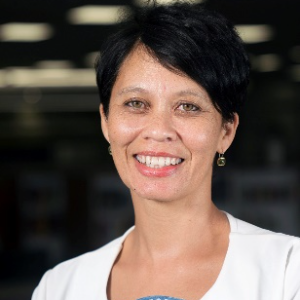Title : Rehabilitation services in South Africa: Capacity and innovation for strengthening services
Abstract:
Rehabilitation is an essential health service that improves the lives of people with a wide range of health conditions – including many people with disabilities – through optimizing their day-to-day functioning. Rehabilitation services in low-and middle-income countries such as South Africa remain underdeveloped, consequently, the growing number of people who need rehabilitation in these settings are left behind. The South African government initiated several health reforms to improve access to quality healthcare and reduce inequities. However, rehabilitation has generally not been integrated into major health reforms in South Africa which prohibited opportunities for strengthening rehabilitation. South Africa is about to embark on another major health reform, the National Health Insurance (NHI), which is intended to provide a health safety net for the most vulnerable in society. Information on the current situation of rehabilitation in the country is crucial in order to ensure appropriate actions to integrate rehabilitation within NHI. This presentation aims to describe findings of a national rehabilitation capacity project and will particularly focus on the challenges, opportunities and innovations of rehabilitation services.
Key rehabilitation service challenges: Challenges included inadequacies in human resources, integration of rehabilitation at primary care, guidelines, and specialized long-term care facilities. Continuity of care across levels of care was sub-optimal due to inefficient referral systems. The workforce density was less than 0.5 per 10 000 people and rehabilitation services were mostly located at tertiary institutions. In most regions, primary care and community rehabilitation, hinged on weekly outreach services in three of the provinces. Specialized rehabilitation services, albeit limited, were reported in selected regions for children with developmental delays and disabilities, people with vision and hearing loss, and people with mental health conditions. Rehabilitation did not include any services for the elderly e.g., fall prevention programmes).
Opportunities and innovations: Strategies that complemented available rehabilitation services at a community level. These strategies included engaging community health workers and including NGOs and community peer support groups. In one region, mid-level health workers) were employed to act as conduits between patients and the healthcare system. Other innovations to augment services included improvement in service coordination and the use of technology to facilitate task sharing.
Conclusion: Rehabilitation service capacity in South Africa should be better aligned to the scale and type of population needs. Rehabilitation faces many challenges, but also opportunities for innovation and improvement to enhance the rehabilitation capacity. Political will and moderate financial investment can notably improve access to quality rehabilitation services, especially at primary care. Future-focused, locally-centred leadership should prevail as the country’s health sector transforms towards an NHI initiative, in which rehabilitation is a core element.




